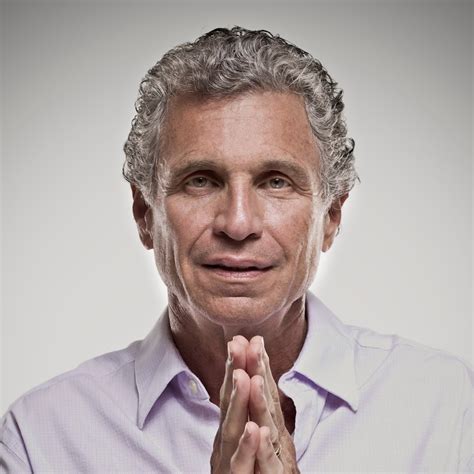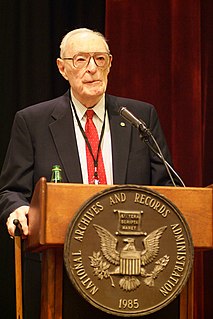A Quote by John M. Gottman
In a good relationship, people get angry, but in a very different way. The Marriage Masters see a problem a bit like a soccer ball. They kick it around. It's 'our' problem.
Related Quotes
The problem of unmet expectations in marriage is primarily a problem of stereotyping. Each and every human being on this planet is a unique person. Since marriage is inevitably a relationship between two unique people, no one marriage is going to be exactly like any other. Yet we tend to wed with explicit visions of what a “good” marriage ought to be like. Then we suffer enormously from trying to force the relationship to fit the stereotype and from the neurotic guilt and anger we experience when we fail to pull it off.
I see the main problem as a spiritual one, not a resource problem, or a problem with this or that government, but a larger problem centered around human beliefs, the troublesome elements founded in our mythology. Our problematic mythology is collapsing all around us. It is a mythology that is predatory.
We have to do something about the cartels. I did talk to [Enrique Peña Nieto] about it. I want to help him with it. I think he's a very good man. We have a very good relationship.He seemed very willing to get help from us because he has got a problem, and it's a real problem for us. Don't forget those cartels are operating in our country. And they're poisoning the youth of our country.
For the problem of decision-making in our complicated world is not how to get the problem simple enough so that we can all understand it; the problem is how to get our thinking about the problem as complex as humanly possible--and thus approach (we can never match) the complexity of the real world around us.
When you have an authority figure tell you something that distinguishes you, there's a little bit of a badge of courage or pride point that comes with it, and also some relief that the grownups actually have an answer for the problem. But, at the same time, there's suspicion and defensiveness, like, Why is the way I do things a problem? Maybe the way you do things is the problem. All of these things come with the very notion that you've been described.
Civil disobedience is not our problem. Our problem is civil obedience. Our problem is that people all over the world have obeyed the dictates of leaders…and millions have been killed because of this obedience…Our problem is that people are obedient allover the world in the face of poverty and starvation and stupidity, and war, and cruelty. Our problem is that people are obedient while the jails are full of petty thieves… (and) the grand thieves are running the country. That’s our problem.
Often the great scientists, by turning the problem around a bit, changed a defect to an asset. For example, many scientists when they found they couldn't do a problem finally began to study why not. They then turned it around the other way and said, "But of course, this is what it is" and got an important result.
I see the war problem as an economic problem, a business problem, a cultural problem, an educational problem - everything but a military problem. There's no military solution. There is a business solution - and the sooner we can provide jobs, not with our money, but the United States has to provide the framework.
Something is amiss, deeply wrong, something is deeply wrong with the way we're living our lives collectively, with the way we are creating our collective experience on earth. And we are coming to the conclusion that the problem after all is not political, that the problem after all is not economic, that the problem after all cannot be solved with bombs or missiles or bullets, but that the problem in fact is spiritual, that the problem with the world today is as it has always been, a problem of our most basic beliefs. Without a doubt it`s a spiritual awakening and a spiritual revolution.
A lot of the time I am told to clear the ball, kick it out, 'degager le ballon' they shout, but I can't do that and if I have to do that then it feels like a defeat for me. I don't know how to do it. I never get rid of the ball that way and when I am watching TV and I see players who do get rid of the ball then I don't accept it.
Working with different people anyway is like life and meeting different people... as long as you can be empathetic, you can take a bit of them on and see what you can do to help their process. That said, my relationship with Woody Allen was trying to hang on his every word so that I could tell everybody what he said afterwards. But certainly, he was a very good example of somebody who you didn't hear talk above a very low volume for the entire time he was on-set.


































